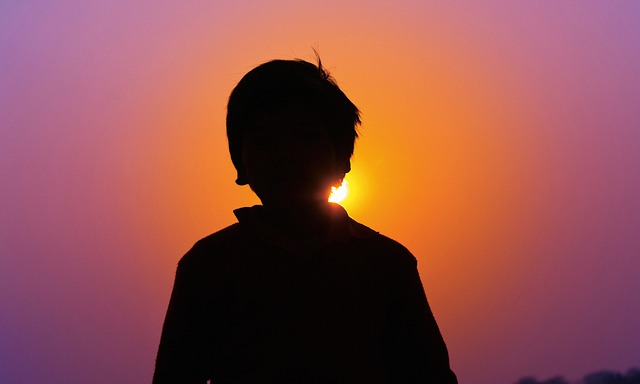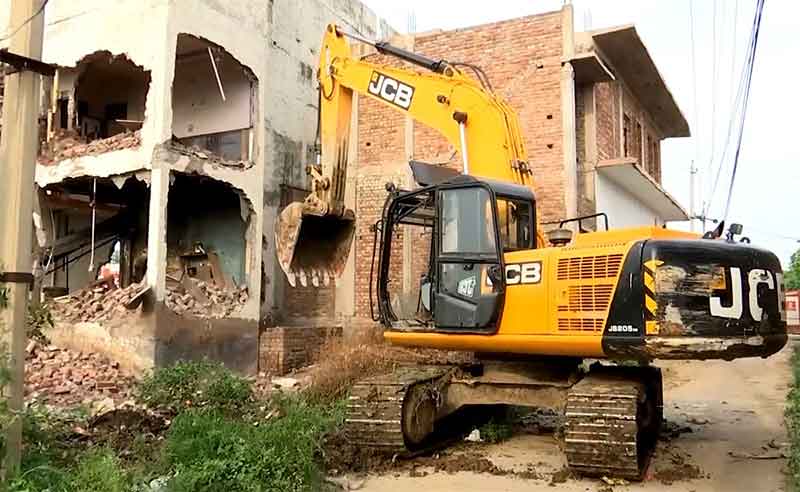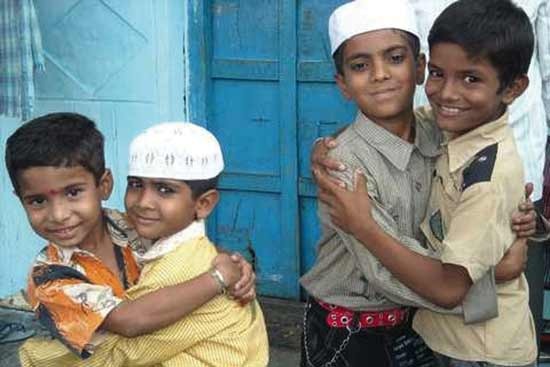
“We the People of India” – the Preamble to our Constitution begins with the promise that it represents the entire country. The ground reality, however, represents a stark contrast. The very people the laws in the Constitution stand for are facing discrimination and violations of rights. The adolescent girls in the workforce are one such section. An interaction with young girls currently employed in the garment factories in Maharashtra’s Nagpur district, revealed how their rights are being exploited by their employers. Ranjani, Seema, Komal, and Pooja represent many less privileged girls for whom laws and provisions are extensively stated but are not exercised in reality.
Rajani, a 17-year-old girl, who is one amongst the 3309 child workers, recorded recently in Maharashtra, works at a garment shop in Nanded. Rajani who works as a helper informed how she does not have access to washroom facilities at her workplace. “First, we take permission to go to the toilet and then go to the nearest public toilet or the hotels or hospitals. I feel ashamed to take permission for something which is personal to me. Also, it is very unsafe to use public washrooms. Although the toilets in hospital and hotels are safer. But, the employees working in these places comments or taunts while using their washrooms.”
Lack of proper sanitation facilities make it even more difficult for them to maintain hygiene and change sanitary napkins during menstruation. This increases the risk of developing Urinary Tract Infections and other diseases. On the other hand, long working hours are another matter of concern. Lamenting on the issues Rajani further added that although one has to come on time, there is no time to leave. “If you are handling any customer, you have to stay until the customer buys something, no matter how late it is,” she added.
What is happening at Ranjani’s workplace is a gross violation of Section 7(2) which clearly states the stipulated hours of work for adolescent employees. It is also an open violation of Section 13 (2) of the Child Labour Act that demands rules to ensure health and safety of the adolescents employees, in particular, clean toilets, provision of drinking water and overall cleanliness. This violates sections 19 and 22 of the Maharashtra Shops and Establishments Act (MSE), 2017. Section 19 states that every employee is obligated to take measures to ensure health and safety of employees including cleanliness. Section 22 obligates the employer to provide adequate, conveniently accessible washrooms for men and women employees.
The UN General Assembly in 2015 declared the right to sanitation as a universal human right. Having physical and affordable access to sanitation that is safe, hygienic and secure and provides privacy and dignity is a human right.
Seema, 15, another adolescent girl who works as a helper at a garment shop informed how they get fewer official leaves. “More leaves will lead to loss of pay. It is worse during festive season as we are not allowed to take leaves,” lamented Seema. Section 8 of the Child Labour Act mandates that every employed adolescent must be granted a holiday of one whole day every week. In addition, Section 16 of the MSE Act also provides that every employee must be allowed a weekly holiday of 24 consecutive hours and in absence of that, a compensatory leave in lieu of it. Seema’s workplace is not following this stipulation. Gender discrimination against women was also very visible at her workplace in terms of appointment, transfers and position of authority. This leads to pay disparity. Moreover, caste discrimination also exists at her workplace.
Section 13 of the MSE Act prohibits discrimination against women workers in the matter of recruitment, training, transfers, promotion or wages. Our Constitution stands on the promise of equality. Thus, indirect discrimination against women is a violation of the above provisions and inherently unethical.
15-year-old Komal highlighted another dimension of this exploitation – unfair working hours. “I am made to work for a minimum of 8 hours to a maximum of 12 hours,” says Komal. This not only violates Section 7 of the Child Labour Act but also Section 15 of the MSE Act that provides that if a worker does overtime, they are to be paid wages at twice the rate of their ordinary wages. The breach of legal compliance is clearly visible.
14-year-old Pooja, another adolescent worker, has a similar story. At her workplace, employees are not allowed to keep mobile phones while at work. “It is a major problem. We can’t even attend calls if there is any emergency at home. In case of crisis, they are ought to visit the shop and inform us,” expressed Pooja. This seems violative of the autonomy of the employees and is unnecessary.
In addition, there is some common non-compliance such as the requirement of giving a notice to the inspector under Section 9 of the Child Labour Act. The notice must contain the details of the employer and information of appointment of the adolescent employee.
One of the major purposes of the 2016 Amendment to the Child Labour Act was to ensure rehabilitation of children engaged in child labour. However, these are mostly provided for children engaged in hazardous employments. These benefits must be strengthened and extended to all adolescent workers. Merely imposing penalty on employers is not enough. The offences for non-compliance with provisions of the Child Labour Act are compoundable in nature.
A significant population of children in the workforce comprises Dalit girls. The society may look at them as weak and helpless, but they are actually fighting an entire system that is trying to break them and their families. How can they be weak then? When, each day, they are financially helping their families financially despite such non-conductive work surroundings. There is an entire section of society that is exploiting their lack of information on their rights for their own financial gains and keeping the child labourers away from their Constitutional rights and provisions, which is why this circle of exploitation goes on.
Bhagyashri Boywad is an anti-caste activist from Maharashtra. Share your feedback on [email protected]
Charkha Features
















































